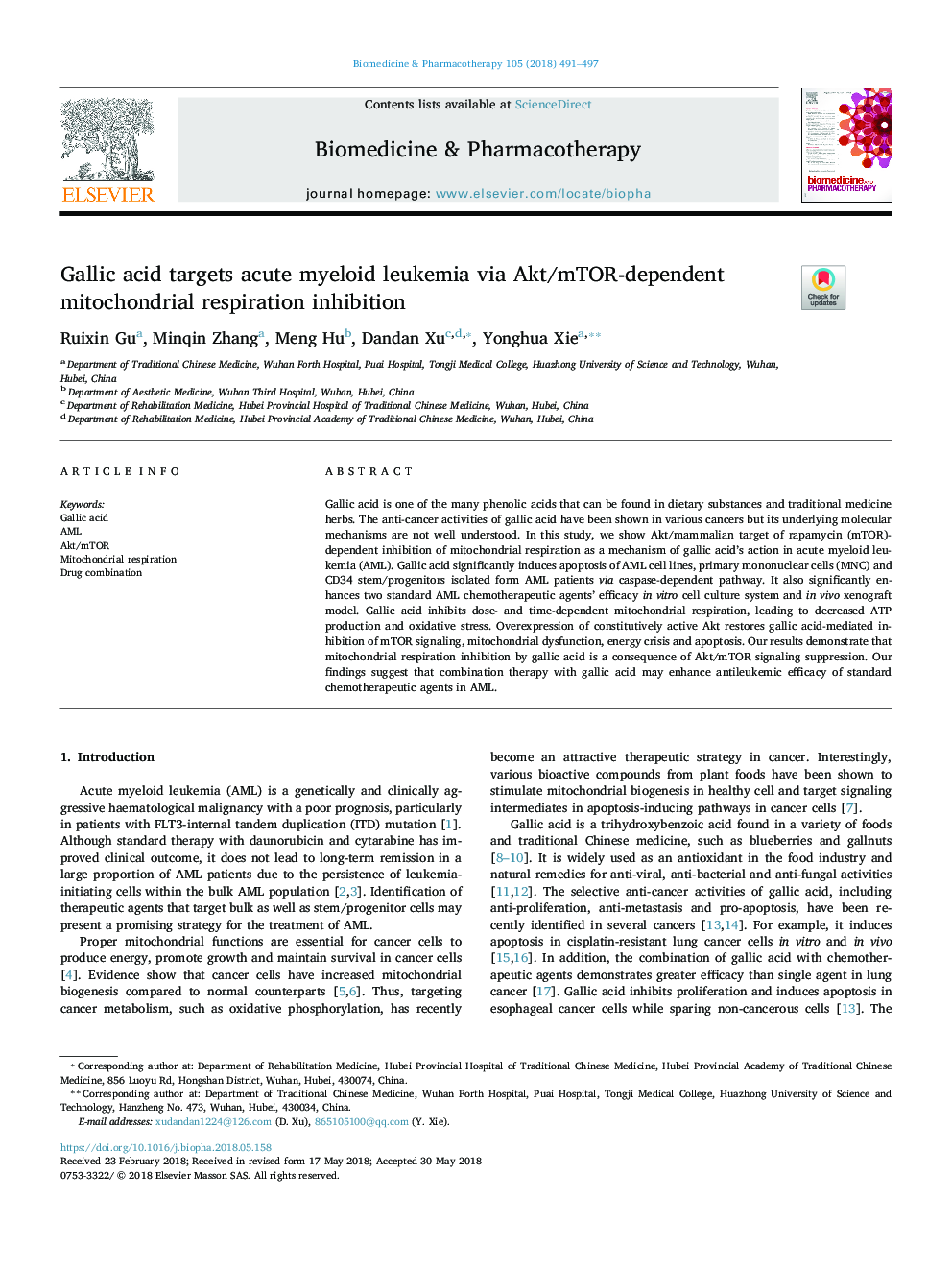| Article ID | Journal | Published Year | Pages | File Type |
|---|---|---|---|---|
| 8525017 | Biomedicine & Pharmacotherapy | 2018 | 7 Pages |
Abstract
Gallic acid is one of the many phenolic acids that can be found in dietary substances and traditional medicine herbs. The anti-cancer activities of gallic acid have been shown in various cancers but its underlying molecular mechanisms are not well understood. In this study, we show Akt/mammalian target of rapamycin (mTOR)-dependent inhibition of mitochondrial respiration as a mechanism of gallic acid's action in acute myeloid leukemia (AML). Gallic acid significantly induces apoptosis of AML cell lines, primary mononuclear cells (MNC) and CD34 stem/progenitors isolated form AML patients via caspase-dependent pathway. It also significantly enhances two standard AML chemotherapeutic agents' efficacy in vitro cell culture system and in vivo xenograft model. Gallic acid inhibits dose- and time-dependent mitochondrial respiration, leading to decreased ATP production and oxidative stress. Overexpression of constitutively active Akt restores gallic acid-mediated inhibition of mTOR signaling, mitochondrial dysfunction, energy crisis and apoptosis. Our results demonstrate that mitochondrial respiration inhibition by gallic acid is a consequence of Akt/mTOR signaling suppression. Our findings suggest that combination therapy with gallic acid may enhance antileukemic efficacy of standard chemotherapeutic agents in AML.
Related Topics
Health Sciences
Medicine and Dentistry
Oncology
Authors
Ruixin Gu, Minqin Zhang, Meng Hu, Dandan Xu, Yonghua Xie,
